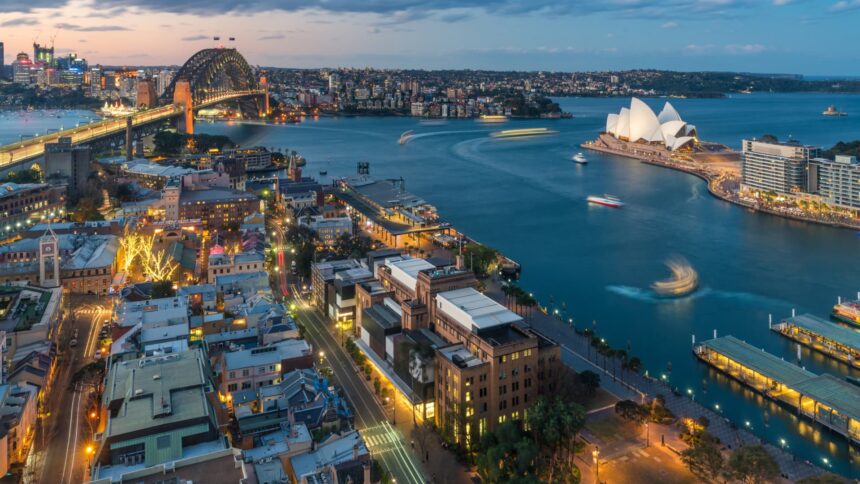Waterfront City Skyline from Sydney City at night in the center with a clear lighting of modern architectural sights in Sydney, Australia.
Prasit photo Moment | Getty images
Australian shares fell on Monday after Prime Minister Anthony Albanese returned to power, while most Asian markets were closed for vacations.
Albanese is the first prime minister of the country to achieve a second consecutive term in 21 years, which points to the wishes of Australians to policy continuously in the midst of an uncertain global macro -economic prospect.
The Benchmark S&P/ASX 200 fell by 0.47%and returned the course of strong profit in his last session when it reached its highest level since 27 February.
The Australian dollar appreciated 0.45% compared to the Greenback to act at 0.6471.
The offshore Chinese Yuan appreciated 0.30% compared to the US dollar to 7,187, the strongest level since November 2024.
The new Taiwanese dollar continued to strengthen and appreciated almost 3% compared to the Greenback to 29,795 and reached the strongest level in more than two years.
Taiwan’s benchmark Taiex fell by 0.31% in turbulent trade.
Japanese, South Korean, Hong Kong and Chinese markets were closed for holidays.
The oil prices fell after OPEC+ agreed to increase production for a sending mouth. Brent crude oil fell by 3.31% at $ 59.26 per barrel, while the West Texas Intermediate Crude oil fell 3.59% to $ 56.20.
The American futures have been demolished, the course of strong victories in Wall Street last week.
The wide -based S&P 500 The session on Friday ended 1.47% higher at 5,686.67. These marked songs ninth consecutive day of winning and is the longest winning run since November 2004. The benchmark also managed to recover all losses since a April 2, when US President Donald Trump announced retribution rates.
The industrial average of Dow Jones jumped 564.47 points, or 1.39%, to end at 41,317.43, and the Nasdaq composite won 1.51% to 17,977.73.
– CNBC’s Sean Conlon and Hekyung Kim contributed to this report.
